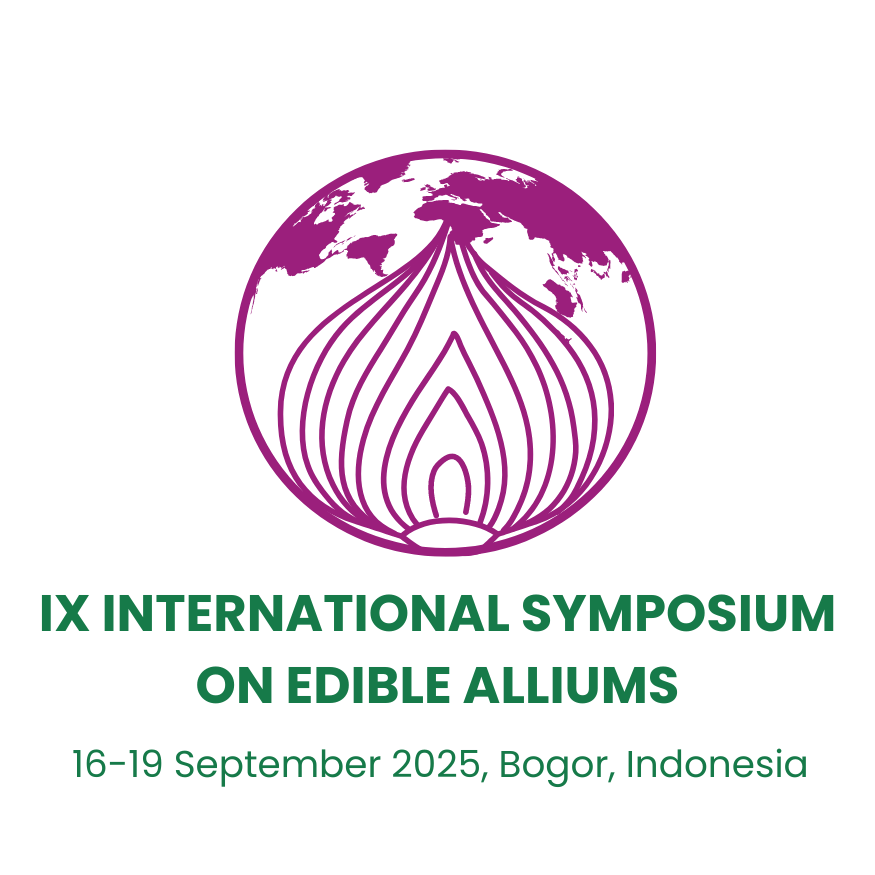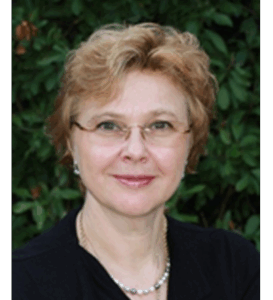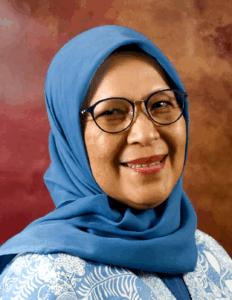We are honored to introduce a distinguished panel of invited speakers whose academic and scientific contributions have significantly advanced the field of Allium research. These experts are internationally recognized for their work in the genetics, breeding, physiology, and cultivation of Allium species such as onion, garlic, leek, and shallot. Their pioneering studies have deepened our understanding of Allium biology and supported the development of improved cultivars for sustainable production systems worldwide.
Prof. Dr. Masayoshi ShigyoYamaguchi University, Japan |
||
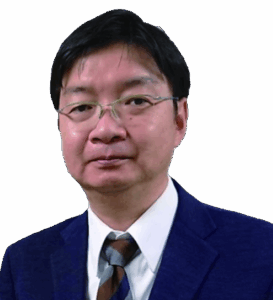 |
Prof. Dr. Masayoshi Shigyo is a distinguished professor at Yamaguchi University, Japan. He specializes in vegetable crop plant breeding, with a particular focus on biotic stress tolerance and innovative omics approaches. He is the Chairman of the ISHS Edible Allium Working Group. Prof. Shigyo’s research encompasses high-efficiency and value-added production systems in plant factories and the development of novel vegetable varieties suitable for cultivation under the effects of global warming. Application of classical and molecular approaches to the genetics and breeding of vegetable crops. Effect of light environment control on growth and functionality in vegetable crops. |
|
Dr. Cho Myeong-CheoulAllium Vegetable Research Institute, South Korea | ||
Dr. Cho Myeong-Cheoul is a horticultural scientist specializing in vegetable breeding, with expertise in pepper, tomato, and Allium crop breeding and cultivation. He has been actively involved in research and development at the National Institute of Horticultural and Herbal Science (NIHHS), South Korea, contributing to advancements in vegetable breeding. From 2022 to 2024, he worked at the Allium Vegetable Research Institute, NIHHS, focusing on the breeding and cultivation of Allium crops. His contributions to vegetable breeding have included collaborative projects in Uganda, South Sudan, Thailand, and the Philippines under international agricultural development programs. |
|
|
Prof. Dr. SobirIPB University, Indonesia | ||
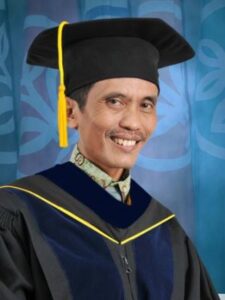 |
| Prof. Dr. Ir. Sobir, M.Si is a distinguished professor at IPB University (Bogor Agricultural University) in Indonesia, specializing in plant breeding and biotechnology. Prof. Sobir’s expertise includes plant breeding, molecular markers, plant biotechnology, and genetic analysis. In addition to his academic role, he serves as the Deputy Chair of the Horticultural Variety Registration Assessment Team and is the Vice President of the Society of Advanced Breeding Science Research in Asia and Oceania (SABRAO). He is also a researcher at the Center for Tropical Horticulture Studies (PKHT), IPB University, where he focuses on improving tropical fruit varieties and enhancing Indonesia’s agricultural competitiveness. |
Dr. Chris KikWageningen University & Research, The Netherlands |
||
|
Dr. Chris Kik is a renowned plant breeder and geneticist affiliated with Wageningen University & Research (WUR) in the Netherlands. He has been instrumental in the conservation and utilization of plant genetic resources, particularly focusing on vegetable crops. Dr. Kik has contributed to various projects aimed at enhancing the genetic diversity of crops, ensuring food security, and promoting sustainable agriculture. His work often involves collaboration with international partners, emphasizing the global importance of genetic resource management. |
|
|
Prof. Dr. Ferdinado BrancaUniversity of Catania, Italy | ||
 |
| Prof. Dr. Ferdinando Branca is a distinguished academic at the University of Catania, Italy, specializing in vegetable and flower crops. He has been serving as an associate professor since 2010, and as of March 2025, he was appointed a full professor of Vegetable and Flower Crops at the University of Catania. Prof. Branca has been deeply involved in research on bio-morphological variations, primary and secondary metabolites, and genetic characterization of vegetable landraces and wild relatives. He has extensively worked on underutilized species, particularly wild species used as vegetables in Italy. Since 1994, he has collected, characterized, and evaluated both wild and cultivated vegetable species, with a special emphasis on Brassicaceae. His studies on Sicilian germplasm of cauliflower, broccoli, kale, and kohlrabi have led to the collection, conservation, and evaluation of numerous landraces for their morpho-biological, agronomic, nutraceutical, and organoleptic traits. |
Prof. Dr. Rina Kamenetsky-GoldsteinARO, The Volcani Center, Israel |
||
|
Prof. Dr. Rina Kamenetsky-Goldstein is a full professor at the Agricultural Research Organization (ARO), Volcani Center in Israel. Her research specializes in the physiology and biotechnology of geophytes, with a particular emphasis on Allium species such as garlic and onions. Prof. Kamenetsky-Goldstein has made significant strides in understanding the mechanisms of flowering and dormancy in these plants, contributing to the development of new cultivation strategies and breeding techniques. Her work has been pivotal in restoring fertility in garlic, a species traditionally propagated vegetatively due to its sterility. Through transcriptome and proteome analyses, she has identified key genes involved in flower and pollen development, facilitating the production of true garlic seeds . |
|
|
Prof. Dr. Y Aris PurwantoIPB University, Indonesia | ||
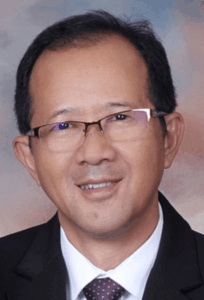 |
| Prof. Dr. Ir. Y. Aris Purwanto, M.Sc. is a distinguished professor at IPB University (Bogor Agricultural University), Indonesia, specializing in agricultural engineering and technology. He serves as the Vice Dean for Resources, Collaboration, and Development in the Faculty of Agricultural Technology at IPB University. His research interests encompass fine bubble technology, plasma-activated water, near-infrared (NIR) spectroscopy, and postharvest technology. He has contributed significantly to the development of innovative agricultural technologies. Throughout his academic career, Prof. Purwanto has been actively involved in various research projects and has published numerous scientific papers. His work focuses on improving postharvest handling, reducing postharvest losses, and enhancing the long-term storage. |
Prof. Dr. Sri Hendrastuti H.
IPB University, Indonesia | ||
Prof. Dr. Ir. Sri Hendrastuti Hidayat, M.Sc. is a distinguished professor of plant pathology at the Department of Plant Protection, Faculty of Agriculture, IPB University (Bogor Agricultural University), Indonesia. With a specialization in plant virology, she has significantly contributed to the understanding and management of viral diseases affecting horticultural crops, including Allium species such as garlic. Her research encompasses the detection, characterization, and epidemiology of plant viruses, with a focus on begomoviruses and other economically significant pathogens. Prof. Hidayat has been instrumental in advancing virus detection methodologies, notably through the application of high-throughput sequencing (HTS) technologies. In 2023, she highlighted the potential of HTS for plant quarantine purposes in Indonesia, emphasizing its capability to identify both known and novel viruses in crops like garlic. |
|
|
Adriyanita Adin, M.ScPT. East West Indonesia, Indonesia | ||
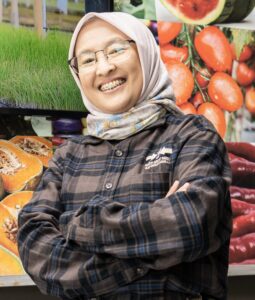 | Adriyanita Adin, S.P., M.Sc. is the Breeding Manager at PT East West Seed Indonesia (EWINDO), a leading vegetable seed company in Indonesia. Her dedication to advancing agricultural practices is evident through her involvement in various research projects and collaborations. She has co-authored studies evaluating the yield potential of shallots grown from TSS compared to traditional bulb methods, demonstrating her commitment to innovative solutions in horticulture. Adriyanita’s expertise and contributions play a vital role in enhancing sustainable vegetable production techniques, benefiting smallholder farmers across Indonesia. | |
Dr. K. E. LawandeMahatma Phule Krishi Vidyapeeth, India | ||
Dr. K. E. Lawande is a distinguished Indian horticultural scientist renowned for his extensive contributions to Allium crop research, particularly onions and garlic. He served as the Director of the ICAR-Directorate of Onion and Garlic Research (ICAR-DOGR) in Rajgurunagar, Pune, where he led significant advancements in varietal development, post-harvest technology, and storage systems for Allium crops. Dr. Lawande’s research extended to optimizing storage conditions for onions in tropical regions, addressing challenges related to sprouting and post-harvest losses. He co-authored several studies focusing on storage techniques, including the use of sprout suppressants and low-temperature storage methods. His expertise has been instrumental in shaping national strategies for Allium crop improvement and dissemination of best practices to farmers. |
| |
Dr. David Torres SánchezWageningen University & Research, The Netherlands | ||
 | Dr. David E. Torres Sánchez is a researcher specializing in plant pathology and genomics. His work focused on understanding the genomic and epigenetic mechanisms that drive the adaptability and evolution of fungal plant pathogens. One of his notable studies, published in eLife, investigated the unique chromatin profiles that define adaptive genomic regions in the fungal plant pathogen Verticillium dahliae. Throughout his academic journey, Dr. Torres Sánchez has presented his research at various international conferences. For instance, he discussed the origin, diversity, and evolution of the Panama Disease pathogen at the 15th European Conference on Fungal Genetics. | |
Dr. Sadanand Dhekney**University of Maryland Eastern Shore, USA | ||
Dr. Sadanand A. Dhekney is a Plant Breeding and Biotechnology Professor at the University of Maryland Eastern Shore (UMES). His research focuses on the genetic improvement of grapevines, employing precision breeding and genome editing techniques to enhance disease resistance and climate resilience. |
|  |


